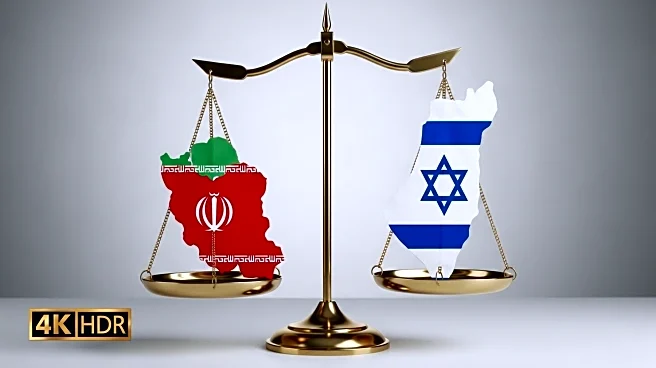What's Happening?
Following a recent conflict with Israel, many Iranians remain skeptical about the durability of the ceasefire signed on June 25. The war, marked by intense missile strikes on Tehran, has left a significant impact on the city's residents. Official reports indicate 700 civilian deaths and numerous military casualties, with independent sources providing slightly different figures. The deadliest strike targeted Evin Prison, resulting in 80 fatalities, including prisoners and staff. Despite Israeli justifications, human rights organizations have condemned the attack as a war crime. The conflict has intensified the longstanding rivalry between Iran and Israel, with Iranian leaders channeling national grief into militant nationalism.
Why It's Important?
The fragile ceasefire and ongoing tensions between Iran and Israel have significant implications for regional stability and international relations. The conflict has exacerbated existing challenges within Iran, including economic sanctions, resource shortages, and public dissatisfaction with the government. The situation may influence Iran's domestic policies and its approach to foreign diplomacy, potentially affecting global geopolitical dynamics. The war's impact on civilian life and infrastructure highlights the humanitarian concerns associated with prolonged conflict, drawing attention from international human rights organizations.
What's Next?
Iranian authorities may continue to pursue internal security measures and address perceived threats, potentially leading to further political and social unrest. The international community may engage in diplomatic efforts to stabilize the region and prevent future conflicts. The situation could influence global energy markets and economic policies, given Iran's role as a major oil producer. Public sentiment and political developments within Iran may shape the country's future interactions with neighboring states and international entities.










